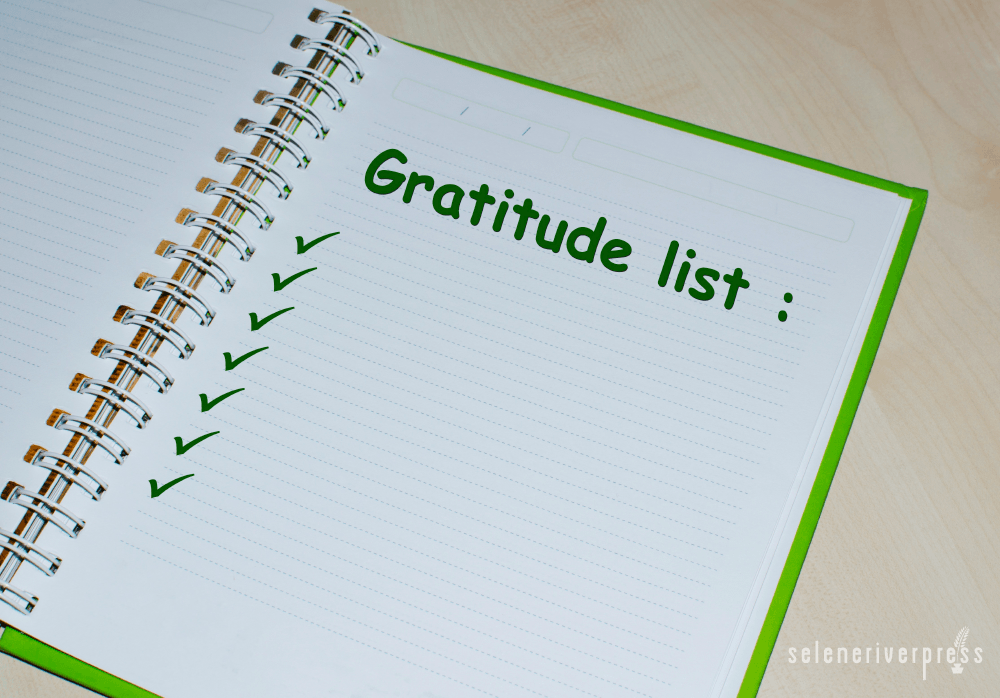There are a good number of people out there who live by the creed of gratitude. While I live my life as an optimist—always seeing the best in people, places, and situations—what I’m talking about here goes way beyond that. It’s more than the power of positive thinking. On a daily basis, these folks count their blessings in a very deliberate way.
I’ve pondered the idea of starting a gratitude journal. The idea is to list the things you’re grateful for at the end of each day, which seems like a wonderful way to watch each one ride off into the sunset. Right? Turns out, I didn’t need to add anything to my daily to-do list. I couldn’t seem to make it a priority to sit with my everyday thoughts and make note of what was good. I tend to think positively as it is, but my methods are just a little more loosey-goosey and sporadic. In a very unscientific way, I can tell you with absolute certainty that when I’m thinking happy thoughts, I feel better about everything. Until recently, that was always good enough for me.
Now that Thanksgiving is approaching, my nature as an inquisitive self-healther has me instinctively thinking I should dig a little deeper and bring more structure into my routine of giving thanks. After all, I know that there is science to back up the idea that gratitude can impact every aspect of your life. But is the evidence persuasive enough to make me rethink my current methods and start a more disciplined approach?
Dr. Robert Emmons is a psychology professor at UC Davis who has spent many years researching what the big deal is about gratitude. When others discuss the power of gratitude, they often quote the findings of Dr. Emmons. Here are some of the ways a conscientious practice of gratitude can make your life even more enjoyable:
- Gratitude helps you connect with the positive influences in your life. This can be a big deal on those days when nothing seems to be going your way. By committing yourself to looking at the good things in your life, you’re shining a light on what’s working rather than dwelling on what isn’t. This shift in your thinking will help you see opportunities and solutions instead of obstacles.
- Gratitude improves your personal relationships. When you get into the habit of expressing to the people in your life (verbally and otherwise) what you like about them, all of your interactions are sure to be that much better.
- Gratitude increases your ability to deal with adversity. No matter who you are, there will be times in your life when you’ll be faced with difficult situations. If you have a tendency toward gratitude, you’re more likely to go through the process of dealing with whatever comes up with more peace.
- Gratitude makes you healthier overall. Stress has a real impact on your mental well-being as well as your physical health. Practicing gratitude is one of the methods you can use to keep those things in check.
I like the sound of all of these outcomes. My interest is piqued. As you might expect, Dr. Emmons’s research has led him to write books with such titles as Thanks! How Practicing Gratitude Can Make You Happier, which I have now added to my holiday wish list. I’m all for living a happier life, and it seems a gratitude practice can give my optimistic nature a real upgrade.
So, how about you? Has gratitude influenced your quality of life?
Photo from iStock/VioricaIonescu



